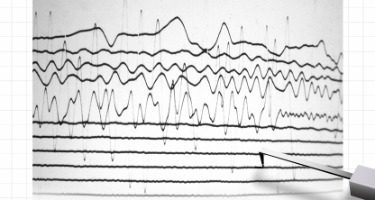Prosecutors were asking for more than 15 years in prison for former Wall Street trader Andrew Caspersen when they headed to court on November 4 to hear the sentence handed down by U.S. District Judge Jed Rakoff. Caspersen had earlier pleaded guilty to bilking family, friends, and other investors out of more than $38 million in a Ponzi-like scheme. Caspersen had lost the money in risky options trades that were fueled, his defense argued during sentencing, by a gambling addiction.
According to news reports, Judge Rakoff called the federal sentencing guidelines that let prosecutors ask for a 15-year sentence “absurd,” adding that “no purpose will be served by letting him rot in prison for years on end.” Allowing that the gambling addiction could be a factor, Judge Rakoff sentenced Caspersen to four years in prison.
Former federal prosecutor Carrie H. Cohen said the sentence is part of a trend of below-guideline sentences in cases like Caspersen’s.
“We’re starting to see a lot more below-guideline sentences, specifically in financial fraud, white-collar cases where the judges are criticizing the guidelines as being high because they’re driven by the loss amount,” she says. Cohen is now a white-collar defense and securities litigation partner at Morrison & Foerster LLP in New York.
“There’s been an outcry that people who are not physically dangerous were getting very, very high sentences in terms of imprisonment,” she adds.
As an example, in one recent case in which Cohen was defense counsel, a $5 million loss translated into an 18-point enhancement in the guidelines, leading to a guideline range of 78 to 97 months’ imprisonment. Cohen argued that the range was “inappropriately inflated by the loss amount” and that the defendant’s conduct was not typical. He was ultimately sentenced to 24 months in prison.
Nationally, the percentage of fraud cases that were sentenced within the federal sentencing guideline range fell to just 40.2 percent in fiscal year 2015. That’s down from 55.5 percent in 2010, and it’s been steadily declining over the years. Sentences below the range far outpaced those above the guidelines.
“Inappropriately inflated by the loss amount.”
The U.S. Sentencing Commission approved changes to the fraud sentencing guidelines in 2015 that may lead to lower guideline ranges in white-collar fraud cases, recommending (among other changes) that “intended loss” be defined as harm that the defendant “purposely sought to inflict.” It may be having some effect: through the third quarter of fiscal year 2016, the percentage of fraud cases sentenced within the federal guideline range has inched up to 43.1 percent.
Still, since the amount of loss continues to have a major effect on the sentencing guidelines, attorneys representing white-collar defendants are likely to continue to see long sentence recommendations for their clients and judges who are open to hearing arguments about why those long sentences are not the right punishment.























